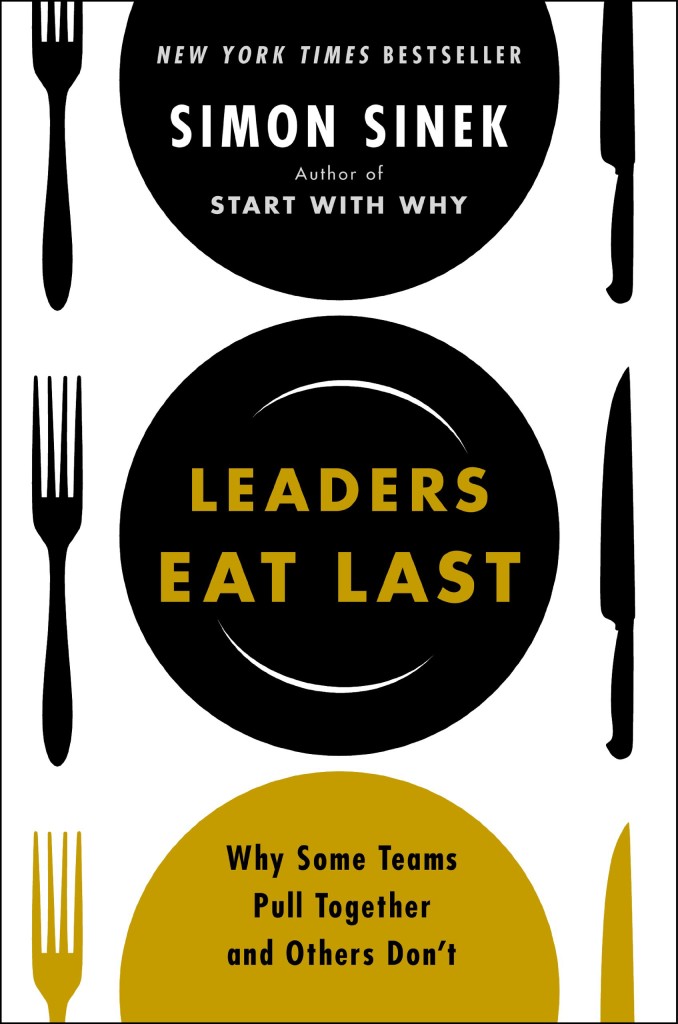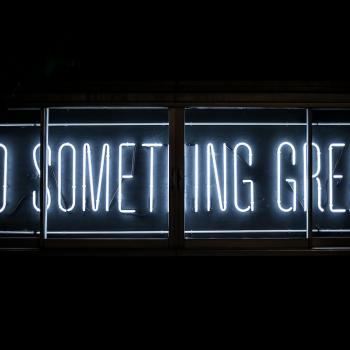I recently read an incredible book, Leaders Eat Last by Simon Sinek. There are tons of transferable principles in here for leadership and businesses. I pulled out ten quotes that have application for all of us. Here’s Leaders Eat Last in 10 Quotes:
1. A close study of high-performing organizations, the ones in which the people feel safe when they come to work, reveals something astounding. Their cultures have an eerie resemblance to the conditions under which the human animal was designed to operate (Page 14). The premise of his book is that any organization (whether for-profit or non-profit) operates best when the conditions are optimal. These conditions are the same ones that allow the human body to thrive. Fascinating premise.
2. Our brains are wired to release oxytocin when in the presence of our tribe and cortisol, the chemical that produces the feeling of anxiety, when we feel vulnerable and alone (Page 50). When we’re in a healthy work or home environment, oxytocin is released, the chemical that makes us feel loved and appreciated. When we’re in a toxic environment, cortisol is released, which is harmful to our body over the long-term.
3. A 2011 study conducted by a team of social scientists at the University of Canberra in Australia concluded that having a job we hate is as bad for our health and sometimes worse than not having a job at all (Page 27). Long story short, being in a job you hate is bad for your health.
4. A study by two researchers at the Graduate School of Social Work at Boston College found that a child’s sense of well-being is affected less by the long hours their parents put in at work and more by the mood their parents are in when they come home. Children are better of having a parent who works into the night in a job they love than a parent who works shorter hours but comes home unhappy. This is the influence our jobs have on our families. Working late does not negatively affect our children, but rather, how we feel at work does (Page 31). Our jobs don’t just affect us. They affect our families.
5. There’s lots of evidence that children who are deprived of human contact, deprived of sufficient doses of oxytocin, have trouble building trusting relationships later in life (Page 51). Oxytocin, released through physical contact (as well as healthy emotional environments), are absolutely critical for the well-being of children. Hold a child.
6. There is another thing to add to that list of things that can hijack our dopamine reward system: social media (Page 43). Sinek is in the midst of a detailed explanation how addictions (like alcohol and tobacco) short-circuit our reward systems to trigger a release of dopamine, the high we feel in any addiction. Research is finding that social media does the exact same thing. Social media is addictive.
7. Abundance can be destructive because it abstracts the value of things. The more we have, the less we seem to value what we’ve got. And if the abstraction of stuff makes us value it less, imagine what it does to our relationships (Page 96). Abstraction is incredibly unhealthy, when people become numbers on a spreadsheet. Where relationships become less face-to-face and more about ‘likes’ and ‘retweets.’ Abstraction is dangerous.
















